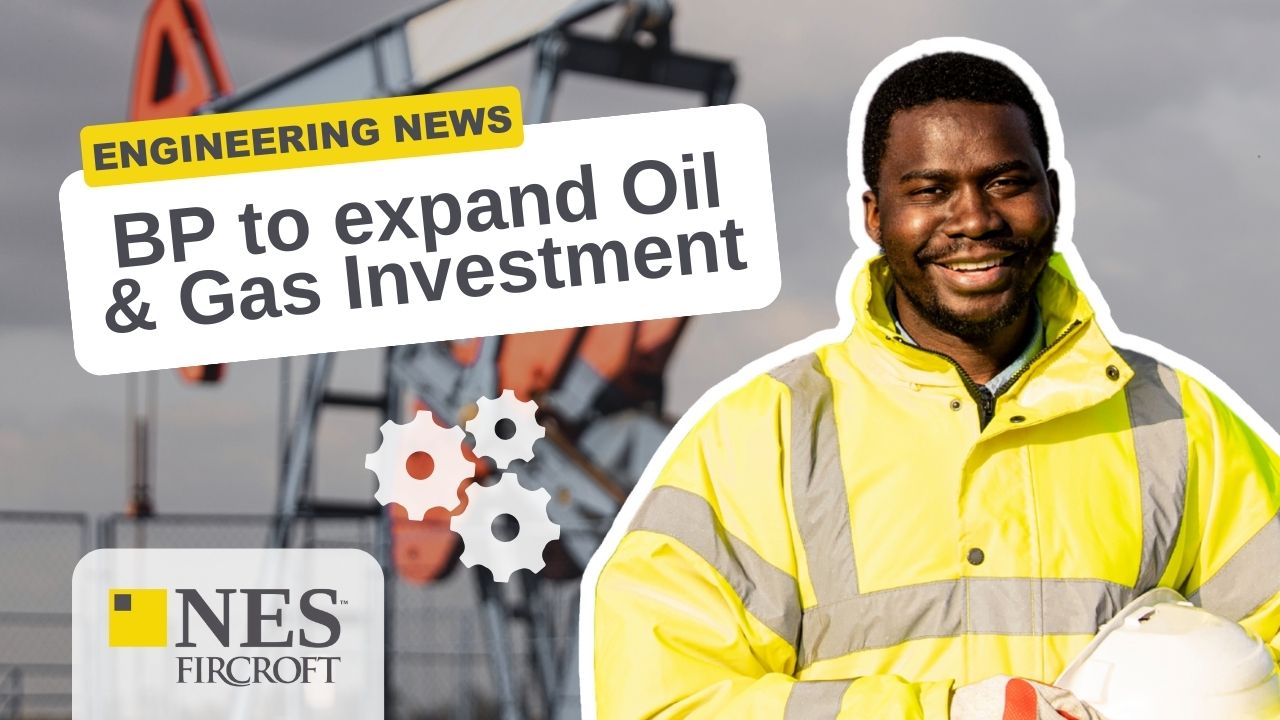How Has Working In The Oil And Gas Industry Changed?
04 Oct, 20193:48Since the first oil well was drilled in 1859, oil and gas exploration has evolved exponentia...

Since the first oil well was drilled in 1859, oil and gas exploration has evolved exponentially, largely thanks to technological developments and changing economic factors, including:
- A growing global population
- Increasing energy consumptions from changing consumer behaviour
- Climate change and sustainability
In addition, to be successful in their oil job, engineers themselves are faced with emergent expectations regarding their behaviour, one of which is the ability to adapt.
Not only does the modern oil and gas engineer need to be a creative, innovative thinker to offer alternative problem-solving in their job, but they also have to be knowledgeable about relevant technology and computer systems. Technology is increasingly used across all facets of the energy industry, and evolves continuously.
After economic changes, technological advancements and changes to personal behaviours, is a change in the engineer’s typical working environment.
Following the development of offshore oil wells and floating LNG platforms, plus a trend for contract workers and expatriate personnel, the life and remit of an oil engineer has changed dramatically since the industry’s inception.
Working on an offshore oil rig
Offshore oil wells were first developed in 1891 in the form of submerged oil wells, and although offshore facilities remain more expensive to set up than onshore oilfield sites, they can produce enormous amounts of oil, meaning that these facilities are increasingly in development, with huge oil companies commissioning offshore projects across the globe.

It’s estimated that there are almost 1,500 offshore oil developments in existence. With an increase in the number of offshore oil wells comes an increase in engineering jobs on offshore oil rigs.
Whereas onshore oil technicians can return home at the end of their shift, working conditions are different for offshore oil engineers; working offshore you’re required to be away from home for around 2-3 weeks at a time with shift patterns generally following a 12-hour working day. The offshore lifestyle can be very rewarding, with salaries compensating oil engineers for their combination of specialised skills, safety risks taken, and time spent away from home.
The impact of technology on the energy industry
Oil and gas companies were pioneers of the digital age between 1980–1990 utilising technology to progress their operations. The adoption of new technology, like virtual reality (VR) and augmented reality (AR), and even more sophisticated computers are still having a huge impact on the way engineers do things.
The last decade has seen enormous advances in technology relating to estimating, finding and producing oil and gas. Only a few years ago these technologies would have seemed like fiction to the same engineers that work the same installations and job roles. New technologies have paved the way for energy companies of all sizes to find substantial quantities of natural oil and gas and the industry's focus on developing technological solutions has increased the world’s producible reserves and improved efficiencies.
From supercomputers to nanotechnology, equipment such as drones and sensors have revolutionised monitoring and maintenance. Seismic imaging technologies, for example, help drilling personnel find fuel that is trapped miles undersea and underground. The development of subsea oilfields enables us to reach deeper underwater and greater distances from shore with higher reservoir temperatures and pressures.
Ultimately, whilst technologies enable greater production at lower costs, they still require engineers to orchestrate them and interpret the data, creating a new wave of technology-centric jobs that simply didn’t exist several years ago.
The rise of the contractor workforce
In our recent Oil & Gas Outlook report we learned that energy employers are increasingly turning to contract and temporary workers in order to staff their projects. Not only has there been a rise in the number of contractors, but thanks to global travel advancements and localised skills shortages, a huge number of Oil & Gas workers are now expatriates and spend the majority of their careers overseas.

As an expatriate contractor, you can generally expect job perks to include things like financial bonuses, housing / car / meal allowances, paid-for travel for your home rotations, and increasingly, training. As more energy companies strive to attract and retain their personnel in an increasingly competitive marketplace, in cases where personnel relocate with family, support packages have sometimes been extended to support the contractor’s family, with assistance for spouses to find a job, and schooling support for children.
For employers, managing an expatriate workforce has as many complexities as it does advantages. For many expatriates, once the project life-cycle has run its course, they’ll relocate to a new project in a new location – wherever that may be in the world, broadening their horizons to new cultures. Thanks to this diverse cultural experience it’s known that expatriate workforces carry with them a plethora of benefits when it comes to working in multi-national teams.
Other market trends indicate an increasing number of female engineers choosing to pursue careers in energy, though not necessarily within oil and gas.
The prevalence of other energy sources
Since the turn of the century, renewable energy sources have sky rocketed, becoming a competitor to more traditional fuel sources, as both parties rely on skilled engineers for their staff base. However, for personnel, this has delivered the potential for more oil and gas workers to cross-skill into the power industry.
Engineers themselves recognise their capacity to cross skill in this manner; in our Outlook Report which surveyed over 33,000 members of the oil and gas community, over 50% cited renewable energy as their biggest area for consideration, should they move away from oil and gas.
What do the changes in the oil and gas industry mean for engineers?
The competitive and costly nature of the sector means that the oil and gas sector is one of the fastest moving industries in the world and subsequently engineers need to be quick to adapt to change, and open minded to new possibilities and continued learning.
NES help candidates and employers to navigate the changing oil and gas market
Our recruiters source candidates for some of the biggest energy projects across the world, with jobs available across various industry verticals. Through tailored workforce solutions, we’ll help energy clients to staff their projects, and through demonstrable experience (we’re proud to look after over 12,500 contractors), our discipline-specific recruiters will help support contractors on their assignments, and help candidates prepare for the job market.









